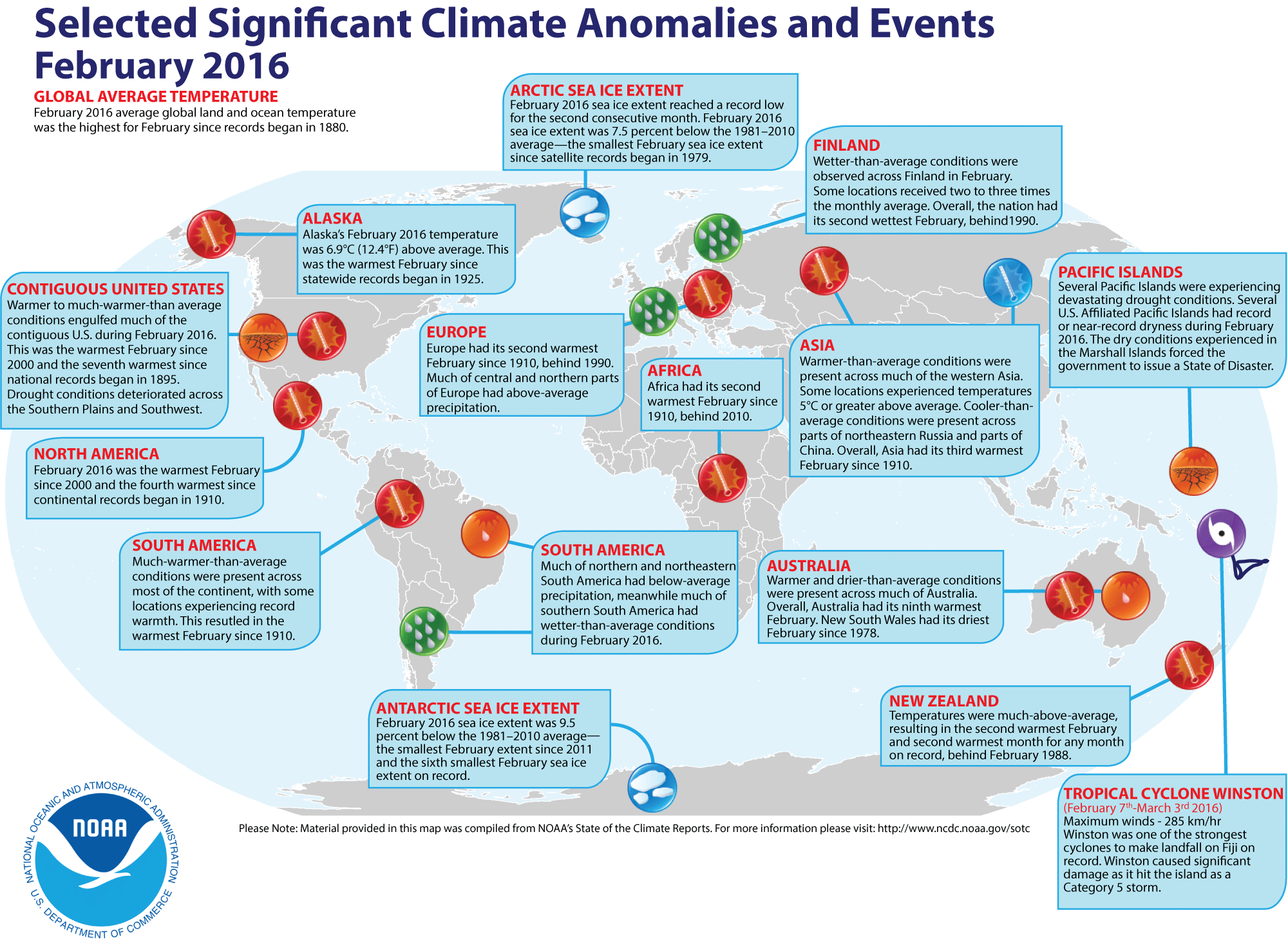NOAA's global temperature analysis for February 2016 indicates it was the hottest February on record with biggest monthly departure ever recorded. Combined with their analyses from the previous two months, it also indicated that globe had its hottest (Northern Hemisphere) winter on record.

"The combined average temperature over global land and ocean surfaces for February 2016 was the highest for February in the 137-year period of record, at 1.21°C (2.18°F) above the 20th century average of 12.1°C (53.9°F). This not only was the highest for February in the 1880–2016 record—surpassing the previous record set in 2015 by 0.33°C / 0.59°F—but it surpassed the all-time monthly record set just two months ago in December 2015 by 0.09°C (0.16°F). Overall, the six highest monthly temperature departures in the record have all occurred in the past six months. February 2016 also marks the 10th consecutive month a monthly global temperature record has been broken.
The average global temperature across land surfaces was 2.31°C (4.16°F) above the 20th century average of 3.2°C (37.8°F), the highest February temperature on record, surpassing the previous records set in 1998 and 2015 by 0.63°C (1.13°F) and surpassing the all-time single-month record set in March 2008 by 0.43°C (0.77°F)."
More from NOAA:
- The winter global temperature was 2.03°F above the 20th century average. This was the hottest winter on record, surpassing the previous record set last year by 0.52°F.
- December 2015–February 2016 also marks the highest 3-month departure from average for any 3-month period on record.
- The globally-averaged temperature across land surfaces was also the highest on record for December–February, 3.47°F above the 20th century average.
- This is the seventh consecutive season in which the globe (land and ocean) was record warm, starting with summer (Jun-Aug) 2014.
Sources:Climate Central,NOAA
